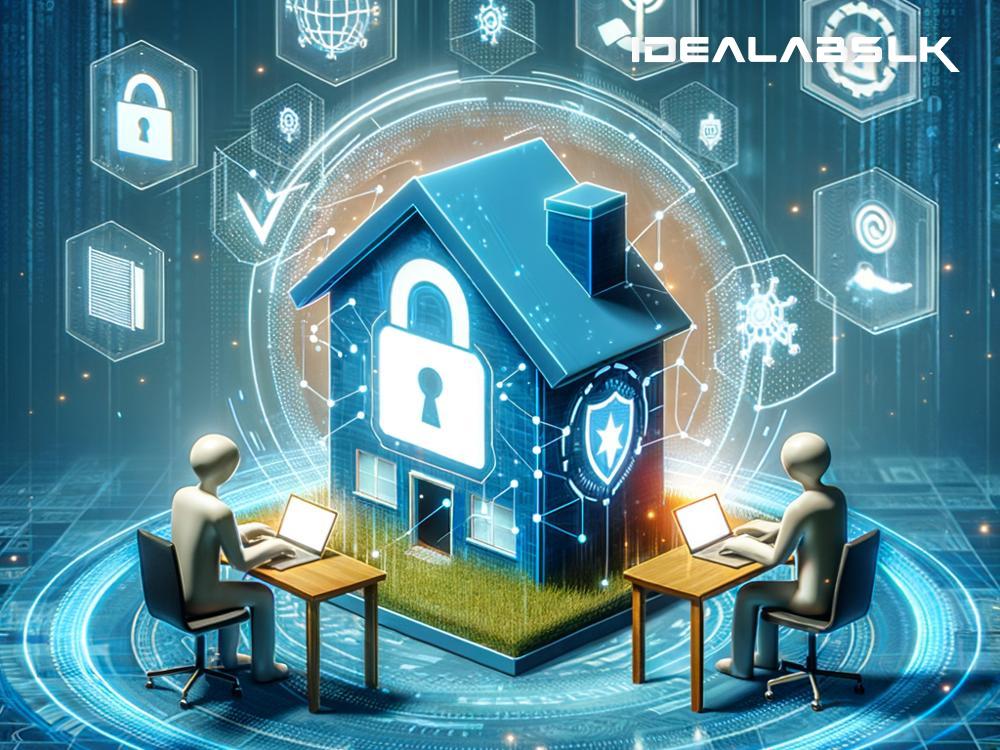Blockchain for Real Estate: Revolutionizing Property Deals with Smart Contracts
In the constantly evolving world of technology, blockchain is no longer just a buzzword associated with cryptocurrencies like Bitcoin. It's a revolutionary technology that is making waves across various industries, and real estate is no exception. Imagine a world where buying a house or investing in property is as simple and seamless as shopping online. This is not a far-fetched idea anymore, thanks to blockchain technology and the use of smart contracts. Let's dive into how blockchain is transforming property deals, making them more efficient, secure, and transparent than ever before.
What is Blockchain?
Before we get into the specifics of how blockchain is revolutionizing real estate, let's understand what blockchain is. Simply put, blockchain is a digital ledger that securely records transactions across many computers. This means that once a record has been added to the chain, it cannot be altered, making the process highly secure and transparent. Transactions on a blockchain are validated by a network of users, making it decentralized and ensuring that no single entity has control over the entire chain. This foundational aspect of blockchain is what makes it particularly attractive for real estate transactions.
Introduction to Smart Contracts
Smart contracts are self-executing contracts where the terms are directly written into lines of code. These contracts automatically enforce and execute the terms of an agreement when certain conditions are met, removing the need for intermediaries. In the context of real estate, this means automated processes for things like escrow, title transfers, and payments — all taking place in a secure and transparent environment.
How Blockchain is Transforming Real Estate
1. Enhanced Security and Transparency
One of the biggest advantages of using blockchain in real estate deals is the enhanced security and transparency it offers. Every transaction on a blockchain is recorded in a way that is nearly impossible to hack or alter, and all parties can have access to the transaction history. This drastically reduces the risk of fraud and makes the property buying process much safer for both buyers and sellers.
2. Streamlined Transactions
Traditional property transactions can be cumbersome, involving various intermediaries like lawyers, banks, and real estate agents. Blockchain, through the use of smart contracts, simplifies this process. It allows for transactions to be completed directly between buyers and sellers, drastically reducing processing times and eliminating the hefty fees associated with intermediaries.
3. Improved Access and Liquidity
Blockchain opens up the real estate market to a broader audience by tokenizing properties. This means dividing property into shareable digital units or tokens that can be easily bought and sold, much like stocks in a company. This not only improves liquidity in the real estate market but also lowers the barrier to entry for smaller investors, making real estate investment more accessible to the public.
4. Automated Trust
Trust is a cornerstone of any real estate transaction. However, establishing trust through traditional means can be challenging and time-consuming. With blockchain, the trust mechanism is built into the technology. Since all records are immutable and transactions are transparent, parties do not need to rely on manual verification processes. The technology itself ensures that the conditions of the deal are met, fostering an environment of trust.
5. Error Reduction and Cost Efficiency
The automation that blockchain and smart contracts offer significantly reduces human errors, which are common in traditional property transactions. Moreover, by eliminating the need for intermediaries, both buyers and sellers save on costs associated with commission fees and administrative charges, making property deals more cost-efficient.
The Future of Real Estate with Blockchain
The possibilities that blockchain introduces to the real estate industry are vast and exciting. While we are only beginning to scratch the surface, the use of blockchain and smart contracts is set to become more prevalent in the coming years. This technology promises not only to make property transactions simpler, safer, and more efficient but also to democratize access to real estate investment, allowing more people to participate in the market.
As we move forward, the integration of blockchain in real estate could fundamentally change how we view property ownership and investment. By simplifying processes, enhancing security, and making real estate more accessible, blockchain is truly transforming property deals for the better. The future of real estate looks bright, and it's digital!

